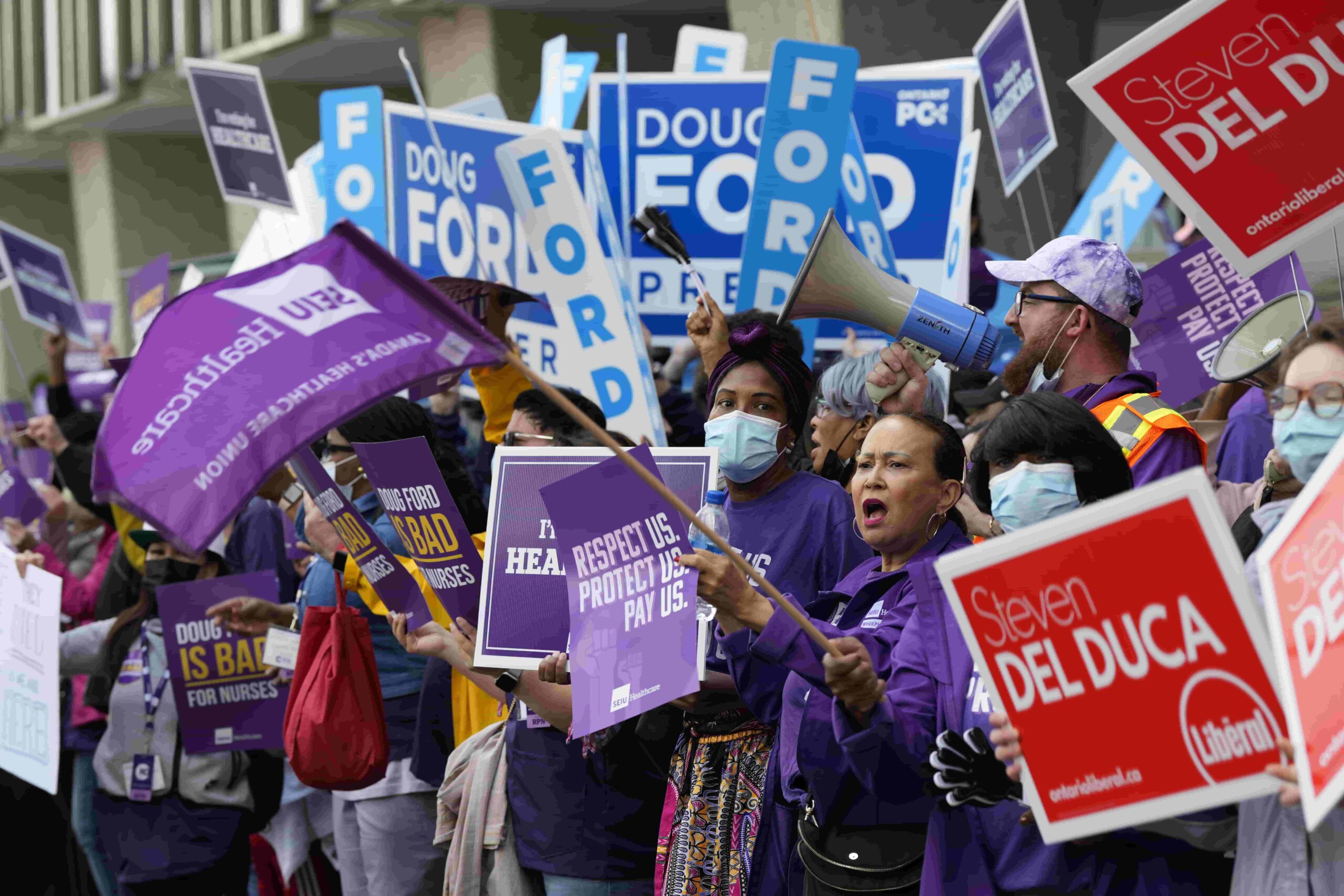How do Ontario’s four main provincial parties stack up on LGBTQ2S+ issues? That’s the question that Queer Vote Ontario is trying to answer ahead of this year’s provincial election, but unfortunately, one party would not participate.
The non-partisan organization released its report cards on May 25, and three of the four parties responded to the non-partisan organization requests for information on their platforms. Ontario New Democratic Party (NDP) and the Green Party of Ontario both received a B grade from Queer Vote Ontario. The Liberal Party of Ontario (LP), received a B-.
The three opposition parties supported the Queer Vote Ontario’s three policy priorities: expanding access to gender-affirming healthcare, creating a provincial LGBTQ2S+ action plan and pledging $25 million annually for LGBTQ2S+ health, social and community services. Each party also responded to a 21-point questionnaire from Queer Vote Ontario, detailing how they would support LGBTQ2S+ Ontarians in education, health, human rights, social services, housing, employment, culture and internal party development policy.
Tyler Boyce, executive director of the LGBTQ2S+ advocacy group Enchanté Network, said in a statement that the B grades awarded to these parties reflects the fact that there is more work to be done.
“Speaking about LGBTQ2S+ people isn’t enough,” said Boyce, whose organization is a member of the Queer Vote Ontario coalition. “We need political parties that understand the systemic and intersectional nature of anti-LGBTQ2S+ discrimination and recognize that our communities, especially QTBIPOC communities, must be reflected across party platforms.”
The depth and quality of responses varied by party, according to Queer Vote Ontario. The Greens and NDP responded to each question in at least some detail, whereas the Liberal responses were more brief and vague.
“While we’re excited by the Liberal Party commitments on LGBTQ2S+ issues, their questionnaire response did not reference intersex or sex worker rights, and lack specificity in some key areas,” Fae Johnstone, Queer Vote Ontario campaign spokesperson, and executive director of Wisdom2Action, told Xtra by email. “Parties should recognize that LGBTQ2S+ issues are present substantively in every area—education, justice, healthcare and beyond.”
The Progressive Conservative Party (PCP), the incumbent party headed by Ontario premier Doug Ford, did not respond to requests for information about its LGBTQ2S+ platform. This was despite repeated attempts to contact them, as well as a deadline extension, according to Queer Vote Ontario. PCP received an F on the group’s report card.
In the four years since the PCP were first elected, Ford’s party has done little to advance LGBTQ2S+ rights in the province. In 2019, the party revised the provincial sex-ed curriculum to delay all discussions of LGBTQ2S+ topics until Grade 8, granted accreditation to the aggressively anti-LGBTQ2S+ Canada Christian College and are allowing a candidate with a controversial anti-LGBTQ2S+ history to run for reelection in Brantford-Brant.
Meanwhile, anti-gay hate crimes have risen dramatically, and transphobia has become a much more prominent in the Canadian political landscape. The province’s flawed trans healthcare system has not seen any updates after a reform bill stalled, and LGBTQ2S+ groups in the province—including some that form part of Queer Vote Ontario’s coalition—remain chronically underfunded.
“Progress has stagnated over the last four years, and that’s largely the fault of the Ford government and their refusal to engage on LGBTQ2S+ issues,” Johnstone said.
Despite myriad issues with the party’s policies, the PCP is favoured to win reelection in next week’s provincial elections, scheduled for June 2. Ford’s party has around 36 percent support from voters and are projected to win 71 seats, more than the 63 needed to form a majority, according to CBC.
If the PCP wins a second term, Johnstone hopes that opposition parties will be more vocal.
“We have individual MPPs championing our issues, but rarely substantive engagement from more than a small group,” she said. “Opposition parties haven’t been loud enough on our issues. All of them still have a long way to go.”
Queer Vote Ontario are also hosting a provincial election debate tonight, featuring candidates from the provincial Liberal Party, NDP, Green Party and Ontario None of the Above Party (NOTA). Despite multiple attempts, the PCP, alongside smaller right-wing parties, the Ontario Party and New Blue Party of Ontario, did not respond to invite requests.
Correction: May 27, 2022 1:27 pmThe original version of this story misidentified the official opposition party in the Ontario legislature.


 Why you can trust Xtra
Why you can trust Xtra


